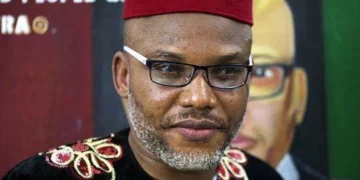Minister of Solid Minerals Development and chairman of the African Minerals Strategy Group (AMSG), Dr Dele Alake, has called for a bold new vision to reposition Africa as a global hub for mineral processing, innovation and green industrialisation.
“Africa’s minerals have powered industrialisation elsewhere, while our economies remain under-industrialised. This paradox must end. Our vision must be clear: to move from extractive dependence to transformative industrialisation,” Alake said.
According to a statement by his special assistant on media, Segun Tomori, on Sunday, the minister called during his keynote address at African Mining Week in Cape Town, South Africa.
The event, themed “Vision & Strategy—Setting the Stage for Minerals Industrialisation,” brought together key stakeholders from the continent’s mining sector.
Represented by the ministry’s permanent secretary, Dr Farouk Yabo, Alake underscored Africa’s strategic importance in powering the 21st-century global economy, stressing that the continent holds some of the richest mineral deposits in the world.
“These resources are critical to clean energy, digital technologies, advanced manufacturing, and global security,” he said.
He emphasised the urgency of industrialising African economies by leveraging their mineral wealth.
“Our youth should no longer seek jobs abroad while opportunities lie beneath them. The time to industrialise is now. Let us set the stage for an Africa that is not just a participant in the global minerals economy, but a driver of its future.”
Providing insight into Nigeria’s ongoing reforms, the minister noted that the country prioritises local beneficiation — from gold refining to lithium processing — to move beyond raw material exports.
He listed key reforms, including revocation of dormant mining licences to incentivise serious investment, strengthening governance and transparency to attract credible global partners, developing a National Critical Minerals Strategy, and amending the 2007 Minerals and Mining Act to provide a stronger legal framework for investment.
“We are investing in digitising mining processes, from data accessibility to mineral traceability,” he said.
“We are also focused on bequeathing strong institutions and the right policies to drive reforms.”
He further emphasised Nigeria’s commitment to ensuring traceability in the mineral value chain:
“Our minerals will come from two sources only: licensed holders, or a seller and supplier buying from artisanal and small-scale miners (ASM) who are registered and formalised.”
According to the statement, Alake also participated in the Ministerial Roundtable of the African Minerals Strategy Group (AMSG) on the sidelines of the conference, where he highlighted Nigeria’s ambition to contribute significantly to the continent’s growth by targeting a $1 trillion economy by 2030.
Echoing sentiments shared by the Democratic Republic of Congo (DRC), he stressed the importance of mapping mineral resources across African countries.
“After national mapping, it is the duty of countries to ensure only licensed operators are mining. We must also build adequate capacity for effective supervision.”
Nigeria also participated in the Country Spotlight Session. Dr Yabo delivered a presentation on investment opportunities in Nigeria’s solid minerals sector, highlighting the country’s mineral endowments, investor incentives, and ongoing reforms.
The African Mining Week drew participation from mining and minerals ministers of the DRC, Zimbabwe, and Sierra Leone. Nigeria, The Gambia, and Ghana sent representatives, alongside major private sector players from across the continent.





